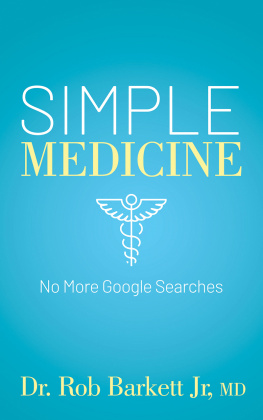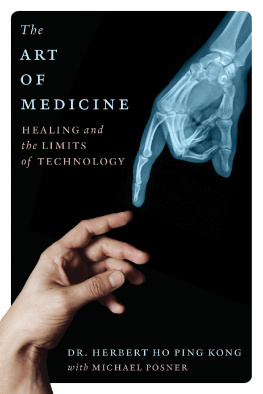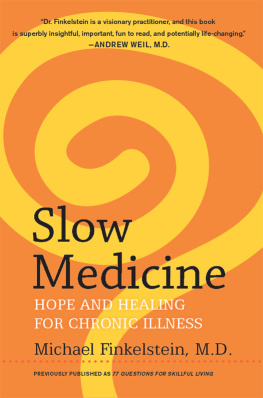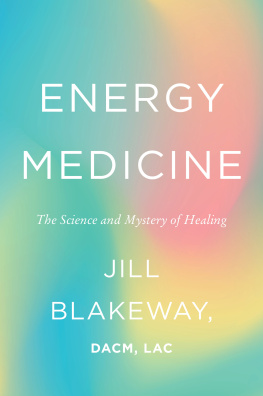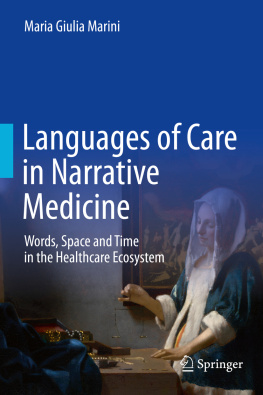Penguin supports copyright. Copyright fuels creativity, encourages diverse voices, promotes free speech, and creates a vibrant culture. Thank you for buying an authorized edition of this book and for complying with copyright laws by not reproducing, scanning, or distributing any part of it in any form without permission. You are supporting writers and allowing Penguin to continue to publish books for every reader.
Names: Sweet, Victoria, author.
Title: Slow medicine : the way to healing / Victoria Sweet.
Description: New York : Riverhead Books, 2017.
Identifiers: LCCN 2017017463 (print) | LCCN 2017026619 (ebook) | ISBN 9780698183711 (ebook) | ISBN 9781594633591 (hardback)
Subjects: LCSH: Medicine. | Chronically illCare. | Healing. | Physician and patient. | BISAC: MEDICAL / Physician & Patient. | BIOGRAPHY & AUTOBIOGRAPHY / Medical. | MEDICAL / Healing.
p. cm.
While the author has made every effort to provide accurate Internet addresses at the time of publication, neither the publisher nor the author assumes any responsibility for errors, or for changes that occur after publication. Further, the publisher does not have any control over and does not assume any responsibility for author or third-party websites or their content.
INTRODUCTION
Medicine Without a Soul
I didnt know how bad it was until my own father was in the hospital.
It began on Friday afternoon of the week before Thanksgiving, not the best time to get sick. Even hospitals and doctors have a kind of schedule, and Friday afternoons are when we like to straighten things up for the weekend. My father came back from lunch at a restaurant with my mother, lay down for a rest, and then she observed him having a seizure.
This wasnt new. Hed had a few grand mal seizures over the years and was supposed to be taking seizure medication, but sometimes did not. And though my mother had seen him have seizures before, she was terrified; seizures are terrifying, though mostly they dont hurt you.
She called 911, the paramedics brought him to the lovely community hospital five blocks from their house, he was examined and admitted.
That surprised me. Where I usually practice medicine, in a public hospital in San Francisco, he would never have been admitted for a simple, recurrent grand mal seizure. We would have checked his labs and gotten a CT scan, observed him overnight in the emergency room, cranked up his seizure medication, and spit him out the next morning. Instead, at the little community hospital, the doctors were going to take their time, get his seizure medication right, let my aged mother sleep that night. How humane.
I reassured the family. I would come up the next afternoon when he would be recovering from his post-seizure state and would doubtless be discharged. He would probably be better than hed been before. Terrifying as they are to see, grand mal seizures clear the brain; shock therapy, which sends a jolt of electricity through the brain, is designed to do the very same thing. With a grand mal seizure, everything shuts down at once, and then, rather like rebooting a computer, the faculties come back up, one by one. First the eyes open, then the body moves, then the patient smiles. Speech comes back, then memory. In a certain way, grand mal seizures are good for you; they allow, in the same way rebooting your computer does, for everything to get reorganized, refiled. Theres a clarity afterward, a quickness; the connections are connecting right again.
But when I walked into my fathers private room, with its view of the mountains, its natural light, I was shocked. He was in four-point restraints, arms and legs tied to the bed corners, and he was unconscious, with a bloody bag of urine at the foot of his bed. Mother was sitting next to him, looking frightened and gray.
They had been together by that time for sixty-eight years, in a kind of Romeo and Juliet relationship, if you can imagine how irritable Romeo would have gotten after those first twenty years, how bossy, and how stressed Juliet would have been with anything in life that upset Romeo, including herself. My mother was still beautiful, and my father still a nice-looking man. White hair, blue-gray eyes by turns attentive, skeptical, and teasing, he was careful of his appearance. Shirt and tie and jacket, and manners. He still opened doors for women and moved to the street side when you walked with him. He was always tough. Uncomplaining. Id never seen him defeated, frightened, or cowed, until that afternoon.
I left the room to find his doctor, or, to be precise, the hospitalist assigned to him for that shift. Dr. Day was alone at the nursing station, typing into a computer. I went over and introduced myself as a physician. He was in a hurry, I could tell, with other patients waiting to be seen, a state I know well. Although he didnt turn his eyes from the screen, he did explain.
Your father came in last night with a first-time seizure, and of course we admitted him to rule out a stroke. His first CT scan was negative, so weve scheduled him for a repeat CT tomorrow, since, as you know, sometimes the first CT after a stroke is negative.
I was taken aback. This was not Fathers first seizure but simply another in a series of seizures. And the distinction was crucial, because in a man his age, a first seizure would almost certainly be from a stroke, and he would need the stroke protocol of care. On the other hand, a seizure in a person with a history of seizures means, usually, that he simply forgot to take his medication.
But this isnt a first-time seizure, I clarified. Hes had seizures for years.
Dr. Day stopped typing. He looked puzzled. Im sure I saw first-time seizure in his electronic health record.... Let me look it up.... Ah, yes, here it is. I thought so. The neurologists admission notefirst-time seizure, rule out stroke.
But its not his first seizure, its one of many. See, he even has an allergy to a seizure medication on his list of allergies, right here. I was looking at the computer screen over his shoulder and pointed it out.
Hmmmm... Yes, youre right. I should change the diagnosis then.
Dr. Day spent quite a bit of time trying to change the diagnosis in the computer but did not seem satisfied with his results. Well, well order another CT scan. Sometimes strokes dont show up on the first scan.
I went back into Fathers room to get another look. Perhaps I was missing something. Perhaps hed had a stroke at the exact same moment as his seizure.



